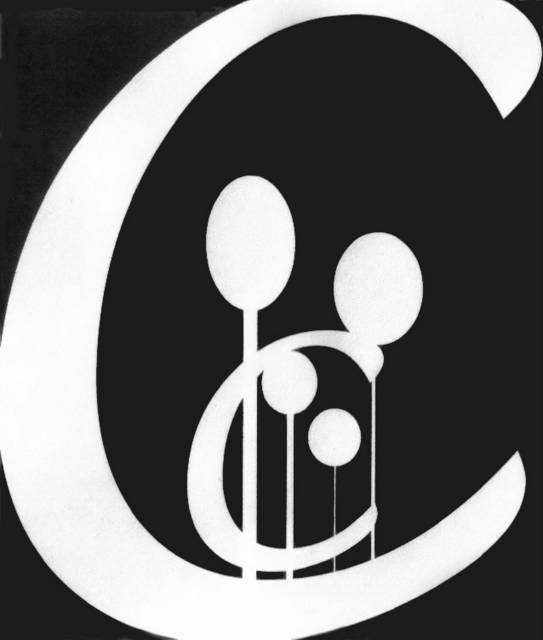I also believe in Open Doors
By Jay Cuasay
(A Reply to Sue Rusell’s "Singing the Passion" available at http://www.killingthebuddha.com/dogma/singingpassion.htm)
Sue Russell, writes about her experience of singing with a Christian choir, as a Jew, during the Easter Season and her impressions of the Gospel of John. Jay Cuasay responds with a look at the Gospel composition and audience of John’s and Matthew’s Gospels, liturgy from a inter-religious perspective, and a common orientation to the one God for Jews and Christians in post-Temple times.
As a fellow musician who sings in many different liturgical circumstances, I can sympathise with the author for the personal and spiritual flexibility it requires to enter into Christian liturgical music as a Jew, especially around Easter settings. Perhaps some historical considerations might also be helpful, noting that each Gospel was composed at a certain time under certain historical realities. The best source for quickly framing both the Gospel of John and Matthew, in my opinion, is to consult Raymond Brown's Intro to the New Testament.
Simply put, it's often easier to categorize Matthew's Gospel as more palatable toward Jews than John's. Matthew's Gospel is composed much earlier and generally speaking wants to take the theme that Jesus is the "New Moses". Thus it tries its best to show parallels between earlier Hebrew Scriptures and the salvation history of the Jews and the larger more universal salvation through The Way. The main audience for Matthew's gospel are still Jews meeting in synagogues and a number of gentiles (still in the minority) who have come to be interested in the God of the Jews through the stories they are hearing about Jesus as told by his Jewish disciples. Thus, it is a Jewish story told by Jews, imbued with Jewish religious language and understandable (at least in syntax) to Jews.
John's Gospel is written after the destruction of the Temple. It is written at a time when gentiles to the Jewish sect have greatly increased and there is increasing acrimony between this minority sect (with its increasing number of gentiles) and the majority of Jews. John's Gospel also has a very radical departure from previous Hebrew scripture in the sense that it is almost a re-writing, or recasting of the entire framework. Note its prologue: "In the beginning was the Word, and the word was with God, and the Word was God." This isn't Jesus as the "New Moses" or even simply "the New Adam". This is Genesis itself "fulfilled" or amplified. This is part of God's plan for creation from the very beginning.
Another perspective worth looking at is how it is possible that Christians (who admittedly) read/misread the offending passages in the past, today go to great pains to explain how such passages are now interpreted in light of Christian Jewish relations (inaugurated by WCC post-holocaust, and in Catholicism put forth in the document Nostra Aetate during Vatican II in 1965, and its subsequent work). Simply put, "his blood be on us and our children" has been taken universally to mean on all of humanity's implication in sin and our universal need to be redeemed by God. As for the role, historically, that Jews played in the crucifixion, it has been my understanding that blasphemy (a religious charge) was punishable by death, but capital punishment was not a sentence that any Jew could legally carry out. In any case, Jesus was handed over to Roman authorities as an agitator and executed by the power of Rome during Passover, when any threat of civil dissidence would be viciously crushed. This was after all Jerusalem--a backwater gulag of the Roman Empire.
The final point I'd like to make returns again to comparative sympathy for a Jewish person experiencing Christian language and taking it personally. One might ask, knowing how uneasy such words can potential be, why not go at great lengths to change them? Simply put, because the words reside in the Gospel language itself...not as a deep indelible accusation, but simply as the inspired word we have come to accept as canonical. As a Catholic, I could make the same simplistic request, noting that Jewish services might attract more people and not seem so self-involved or xenophobic if the services stopped referring to the Chosen People and the People Israel in such an exclusivist way. But I know better that much of the God who speaks in Hebrew Scripture is directed to the Jewish People in an intimate way that would be incorrect to change.
However, what I think both Jews and Christians share is not just open door policies to our houses of worship or open ears to our liturgical songs. We much more importantly share a relationship with the one God in a world where there is no longer a singular place for which to worship that God. In this post-Temple world, it is no longer a case of which religion will triumph and build the everlasting place, but rather the manners in which we find ourselves in relationship to the one God. Clearly Jews and Christians are related to God differently, even as we are God's children. Nevertheless, for some of us it brings us in contact with each other. For others we remain amongst our own. But because of history, we cannot pretend that we are not in the same world in very different times than before.
Bon Pasca
Happy Easter
Jay Cuasay is a graduate of Washington Theological Union in Washington DC. He received a Masters in Pastoral Studies. He wrote "Dabru Emet and Christianity in Jewish Terms: Third Epoch Judaism and Post Vatican II Ecumenical Reception" which examined recent Jewish responses to Nostra Aetate and the significance of Jewish Christian interfaith marriages. He is married to a Jewish woman. They named their firstborn Joshua Emet.
Friday, March 25, 2005
Subscribe to:
Posts (Atom)
